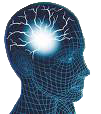Sleepless in Surrey; pt 2
by admin
As mentioned in the previous posts, insomnia frequently coexists with chronic migraine, and small trials have suggested that cognitive-behavioral treatment for insomnia (CBTi) may reduce migraine frequency.
Insomnia is by far the most common sleep disorder among headache sufferers, affecting the majority of those who seek treatment for migraine. Prevalence and severity of sleep problems increase proportionally with headache frequency, such that individuals with chronic migraine experience more frequent and severe sleep disturbance than those with episodic migraine. Insomnia is characterized by regular difficulty obtaining sufficient restful sleep—manifesting as difficulty with sleep initiation, maintenance, duration, or quality—with resulting daytime symptoms (eg, fatigue, irritability, concentration problems).
Cognitive-behavioral therapy for insomnia (CBTi) is a well established treatment for insomnia, such that the American College of Physicians recently issued a clinical practice guideline recommending CBTi as the front-line treatment for adults with chronic insomnia.
Completer analyses of 2 randomized trials comparing CBTi to a sham control intervention (Calhoun and Ford, 2007; Smitherman et al, 2016) were used to quantify the effects of a brief course of treatment on headache frequency in chronic migraineurs.
Results showed there is high probability that individuals who receive CBTi experience greater headache reduction than those who receive a control intervention equated for therapist time and out-of-session skills practice.
COMMENTS; We have a fully qualified clinical psychologist here at Epsom & Ewell Headache and Migraine clinic who is very experienced in the use of CBT for insomnia ( & chronic pain). There is also information and advice for people having sleep difficulties available on the useful downloads page.
Comments
Leave a Reply

